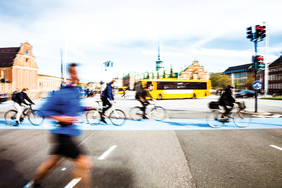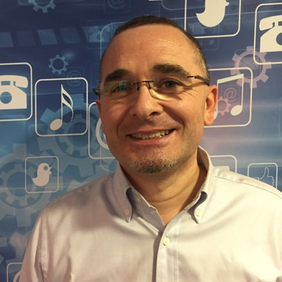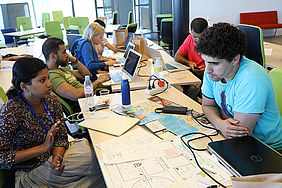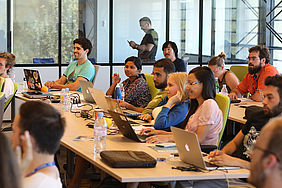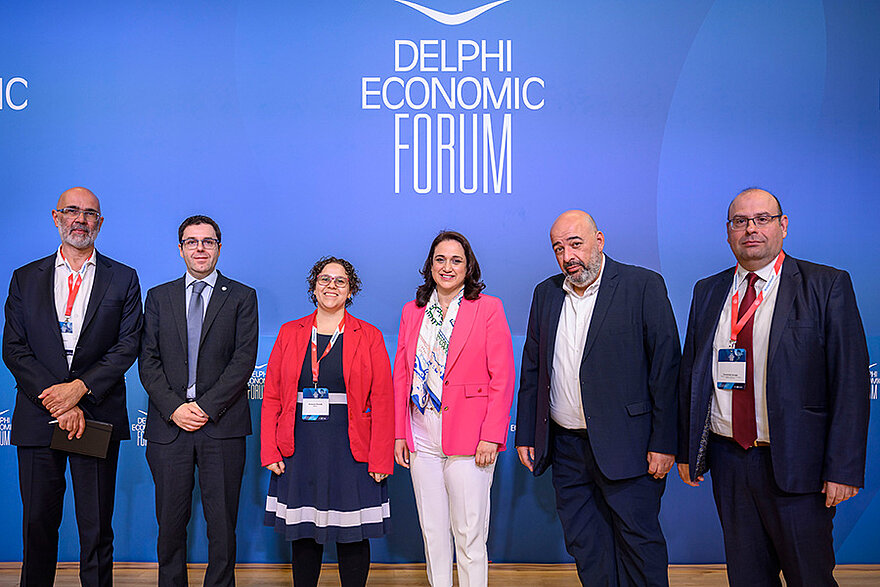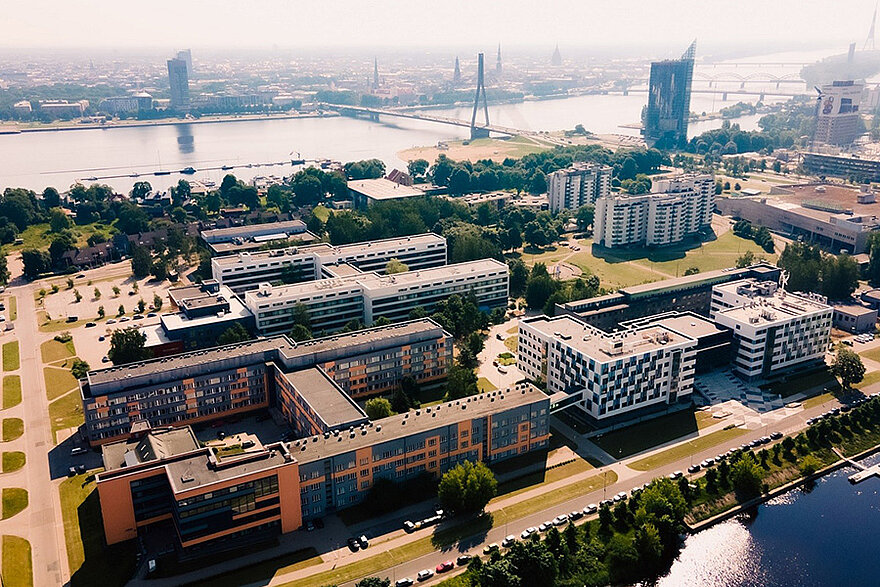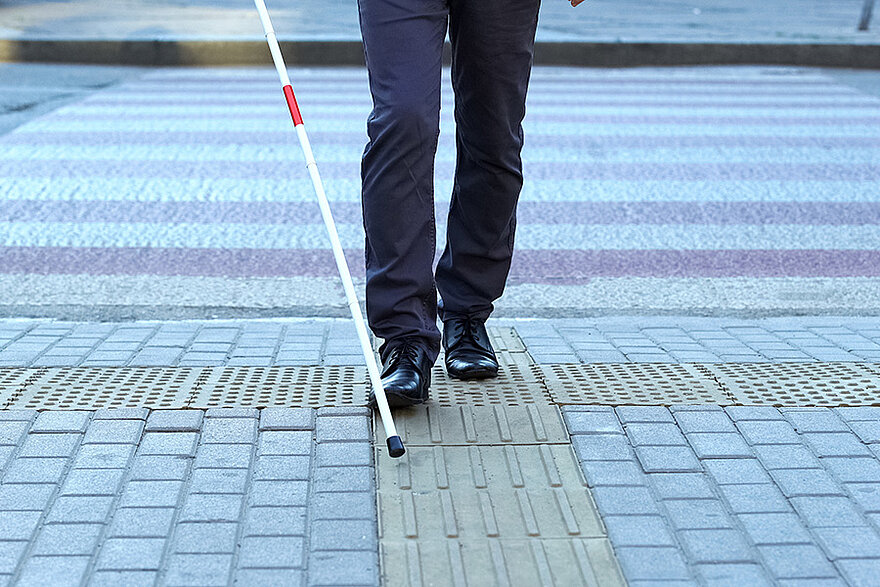Stéphane Péan, Digital Cities Action Line Leader at EIT Digital, warns policymakers to be aware of digital cities and the new opportunities they provide. He explains this in an interview regarding two Summer Schools on Digital Cities that he is organising for the EIT Digital Academy in Nice and in Berlin. "In the next decade, we will have much more objects connected to the Internet creating new services and hence, more empowerment for our citizens."
Péan believes that Digital Cities' innovations change the way people co-exist in cities and how they relate to authorities. "We will see new services that we don't even know today. The idea of the future is that you can empower citizens through new solutions that will give them more autonomy to decide by themselves. I'm not talking about influencing, but real empowerment. Citizens can create and participate in networks to support new solutions at a community level. These networks won't be launched by authorities, but by citizens themselves through private initiatives. However, when you have more innovative solutions in the community, the public authority faces difficulties in regulating them. The common good is a challenge. Cities also need to reinvent new ways to adapt regulation."
Are you describing a clash between citizens and authorities?
"We might have a gap between citizens and authorities. Politicians should be aware of the impact of digital solutions on bottom-up approaches. They can give active power to citizens, for example, people can create their own events in public places or companies that affect regulations, like Uber. The public sector must also innovate for a better regulation. An important point is inclusion: if you build solutions that will only be used by "happy few" or gated communities, it will put the other citizens in isolation. Politicians need to be ahead and lead these transformations. They should be more visionaries if they don't want to be left behind."
How far away is this future of Digital Cities in Europe?
"We are already in motion now. In the next decade, we will have more objects and vehicles connected in a full infrastructure and communication networks via the Internet of Things (IoT) and 5G. Cities will be connected cities. Some of the great innovations that will reign in European cities are already here around us, yet still on a small scale. To scale-up, Europe should - it's already in paper - create a unique Digital Single Market and support standardisation. Otherwise, the scalability of digital technologies is too difficult to achieve. We don't have companies that can provide big platforms in Europe. Europe is still too much fragmented, divided in nations. To create big European champions, we need to change the mindset from national to European thinking to truly open boundaries in Europe. In addition, big corporations should be more open towards innovation, not just for testing proves of concepts (PoC) but for a true go to market strategy. They need more agility and expertise."
What else is needed in Europe to make sure the Digital Cities innovations can scale up in Europe?
"Europe needs talents in digital innovation. That is why we have the EIT Digital Academy. We need talents with a great level of technology, including knowledge about new trends like IoT and Artificial Intelligence (AI). But you certainly should know how to do marketing, how to identify customers and how to come up with effective business models as well. Part of the soft skills is a European mindset and understanding of the different cultural behaviours in Europe. Each city is also unique. It is very important to understand their organisation both in terms of urban planning and governance."
The Summer Schools are mandatory for the EIT Digital Master School students, but also employees of companies who want to keep abreast of new developments can join.
What can they learn from a Summer School which you cannot learn in a university?
"Usually digital solutions are supported and pushed by engineers, they are very technology oriented. Engineers often don't know how institutions work, don't know about marketing and particularly how to attract customers. We must bring all those perspectives to them to successfully end-up with a robust and realistic business model. Young engineers don't know about it. A big point if you compare to universities, the Summer School focuses on concrete and practical use cases. For the Digital Cities Summer Schools, we have collected different business cases from experts, companies and partners in the cities of Nice and Berlin. Digital Cities is not just about "techno push", but how to have a more comprehensive point of view and a multidisciplinary approach to bring significant societal and economic impact. Digital innovations should be about how to make the lives in Europe better, for all citizens without distinction."
What is the content of Summer School in Nice, Urban Mobility, Safety and Exploration - Nice, June 25-July 8 about?
"In general, it is about how to implement digital cities projects in European municipalities. The focus lies within urban mobility or e-tourism. We teach them that innovations can succeed if they not only focus the "happy few". It is about developing and spreading new services to all citizens or tourists. Students learn about standardisation, platforms and Open Data already being collected through thousands of devices to deliver new and better services, as well as technology evolution to support decision making in city planning. High-level professionals and mentors explain concrete business cases on urban mobility or e-tourism that are already taking place such as Mobility as a Service (Maas) within our urban settings or customised and real-time information and packages for tourists to not only improve the experiences but also to actively contribute to the local economy."
The title of the Summer School in Berlin, from July 23-August 5, is Citizen Participation and City Governance. What is this about?
"In Berlin, the EIT Digital Academy focuses more on city governance and citizen participation from a social science perspective. The purpose is to include citizens into the process of shared decision making with the support of participatory tools. Therefore, students learn how cities governance work. When you launch a Digital Cities project, it is also about how to decide on infrastructure planning or how to allocate budgets to support citizens' ideas in a bottom-up approach. We are going to provide our students with the most appropriate knowledge, methodologies and skills to solve the Digital Cities challenges not only to change our future, but for the people today."
More information on other EIT Digital's Summer Schools here.
Authors - Álvaro de la Cruz and Karin Oost
